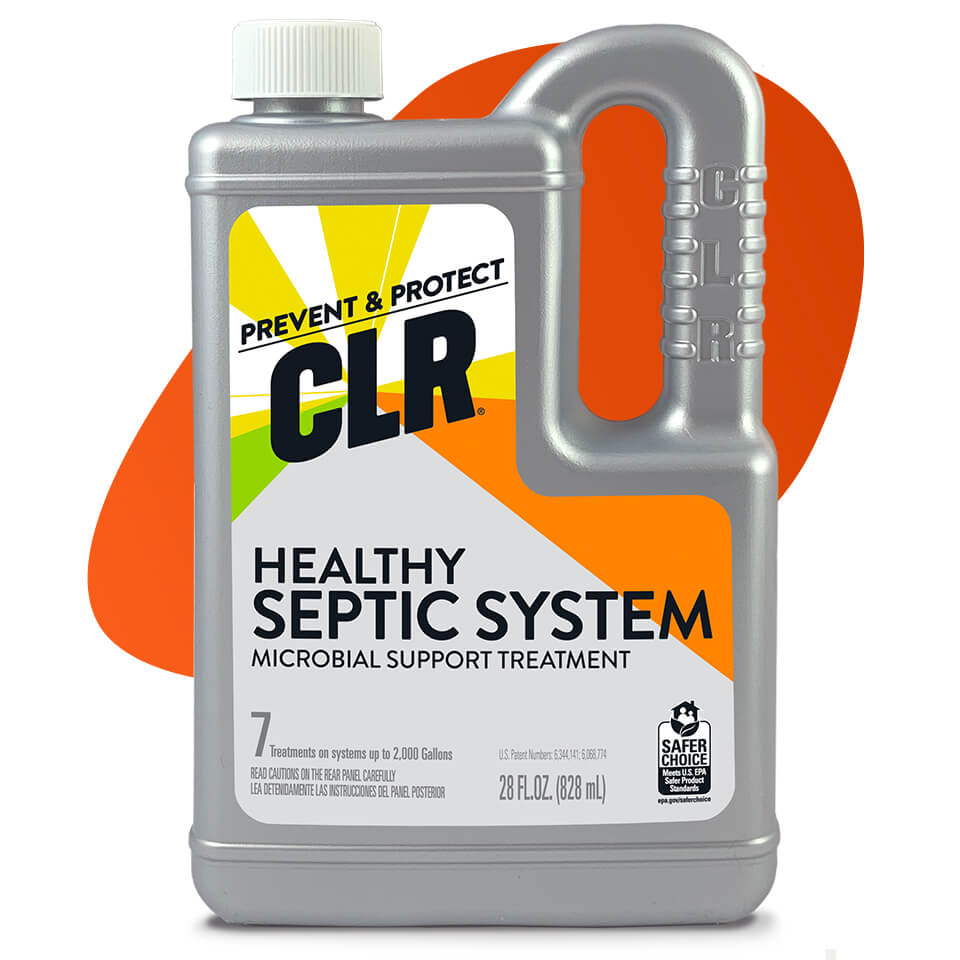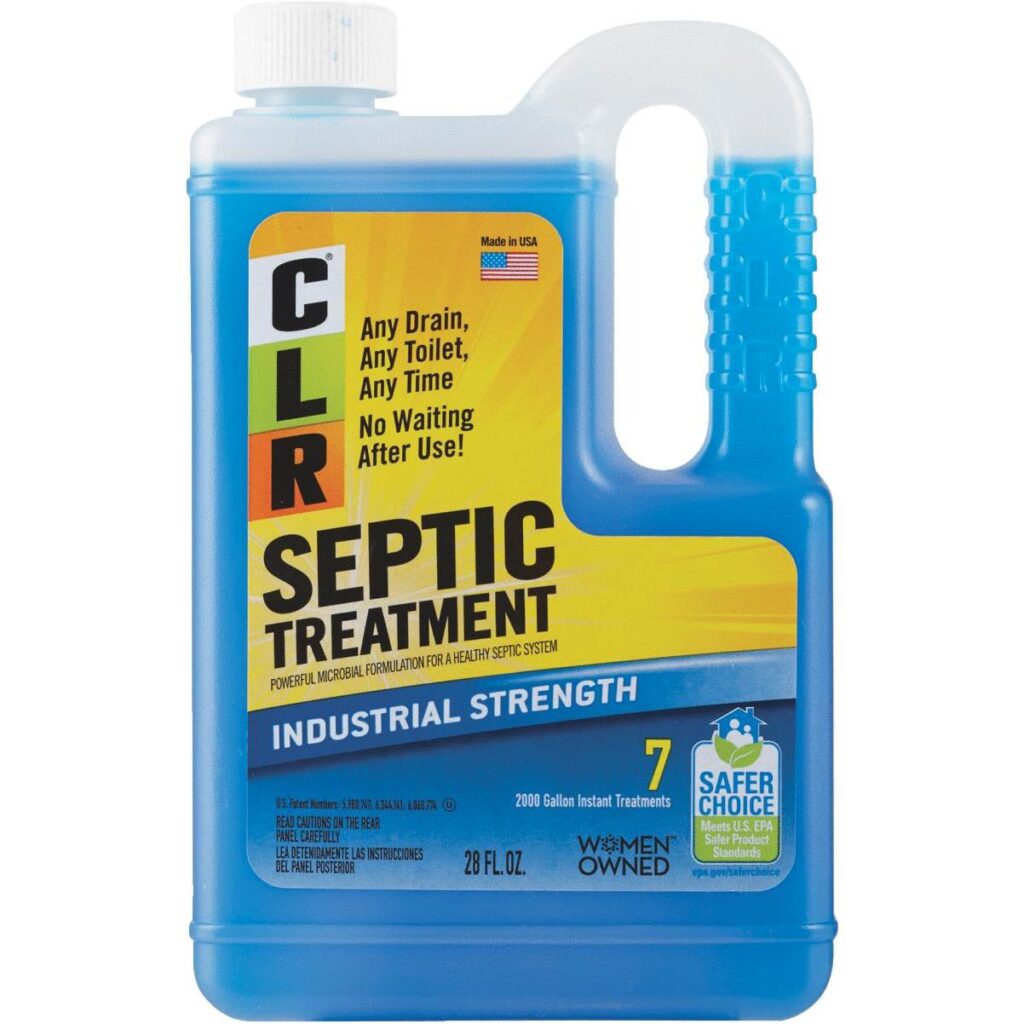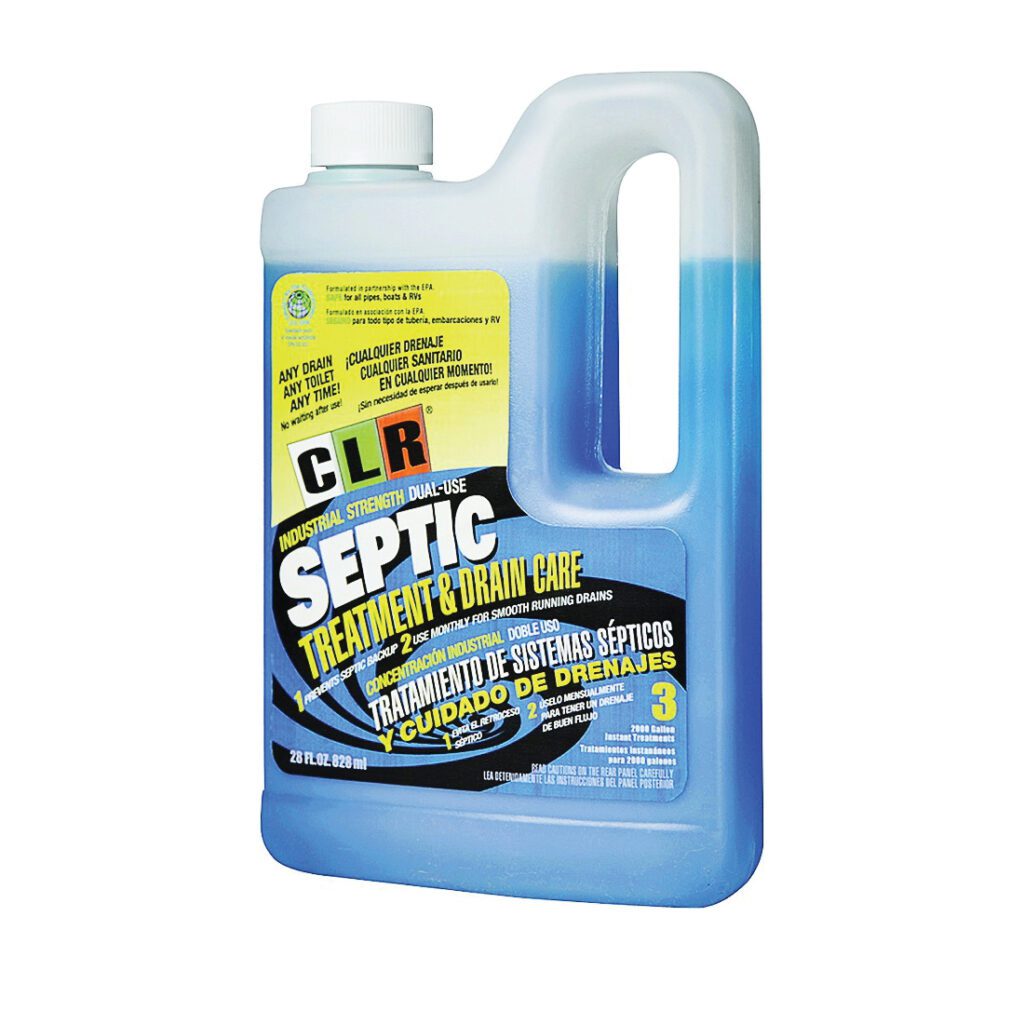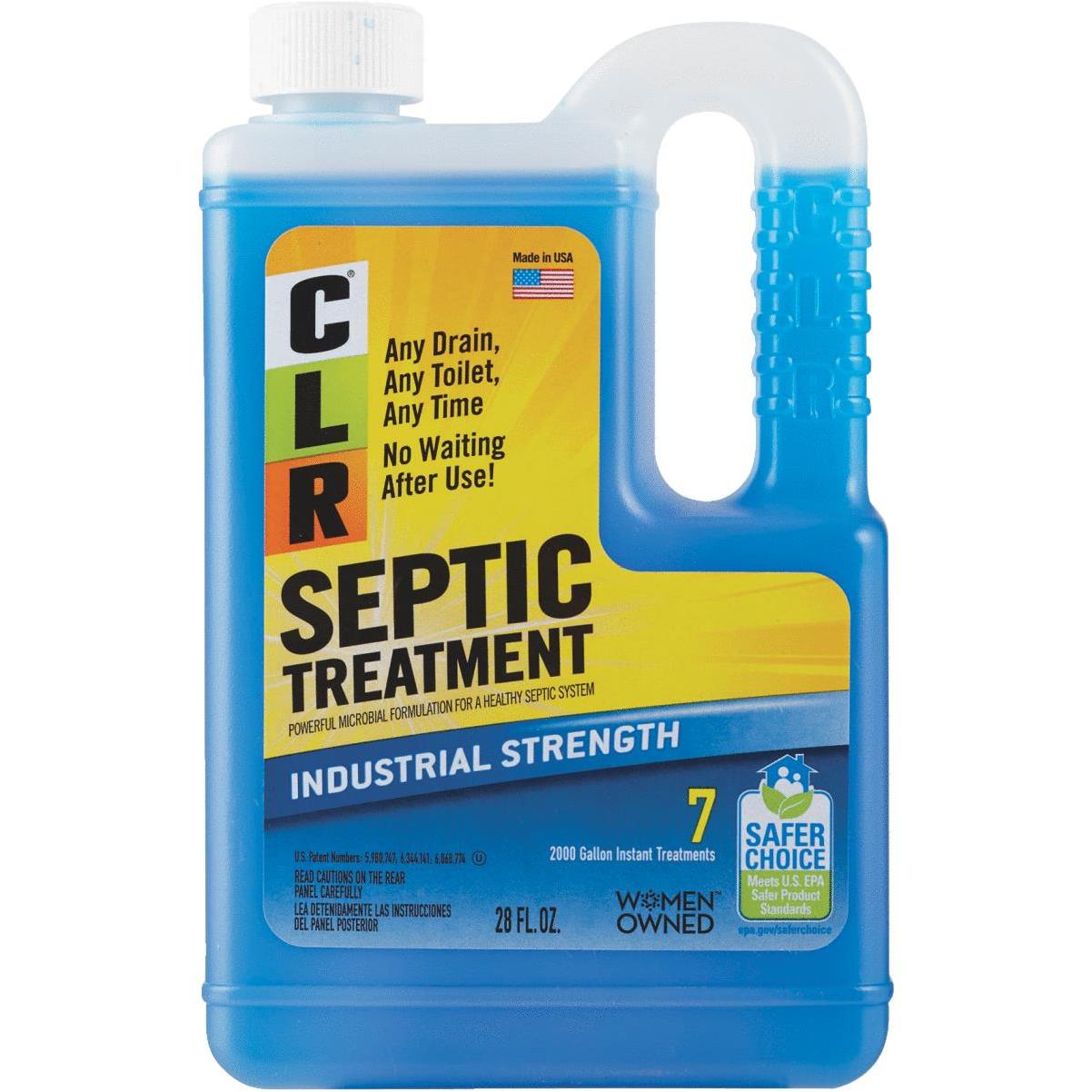In this article, we will discuss the topic of CLR cleaner and its safety for septic tanks. We will evaluate the impact of household cleaners on septic systems, focusing on CLR cleaner specifically. By the end of this article, you will have a better understanding of whether or not CLR cleaner is safe to use in your septic tank and how it can affect the overall health of your septic system. So, let’s get started and find out if CLR cleaner is the right choice for your septic tank.
Introduction
Understanding septic tanks
When it comes to maintaining a healthy home, one aspect that often goes unnoticed is the septic system. Septic tanks are an essential component of many households, responsible for the safe disposal and treatment of wastewater. It is important to understand how septic tanks work and why proper maintenance is crucial for their longevity.
Importance of proper maintenance
Septic tank maintenance involves regular inspections, pumping, and the use of septic-safe products. Neglecting proper maintenance can lead to a variety of issues, including clogs, backups, and even system failures. One factor that often gets overlooked in septic tank maintenance is the impact of household cleaners on the system.
Introduction to CLR Cleaner
CLR Cleaner is a popular household cleaning product that is known for its ability to remove tough stains and deposits. However, many homeowners are unsure whether CLR Cleaner is safe to use in septic tanks. In this article, we will evaluate the impact of household cleaners, particularly CLR Cleaner, on septic tanks to determine its safety and effectiveness.
Septic tanks and household cleaners
Common household cleaners and their impact on septic tanks
Household cleaners, such as bleach, disinfectants, and drain cleaners, can have a negative impact on septic tanks. These cleaners often contain harsh chemicals that can disrupt the natural balance of bacteria in the septic system. When the balance of bacteria is disrupted, the system may struggle to break down solid waste properly, leading to clogs and backups.
Chemical composition of CLR Cleaner
CLR Cleaner is a powerful cleaner that contains a unique blend of ingredients. The primary active ingredient in CLR Cleaner is lactic acid, which helps dissolve calcium, lime, and rust stains. It also contains additional surfactants and cleaning agents to tackle tough stains and deposits.
Potential risks of using CLR Cleaner
While CLR Cleaner is highly effective at removing stains and deposits, there are potential risks associated with its use in septic tanks. The lactic acid in CLR Cleaner, although relatively mild compared to other cleaners, can still have a negative impact on the bacteria in the septic tank. This can disrupt the natural breakdown of waste and potentially contribute to system issues.

Evaluating the safety of CLR Cleaner
Research studies on CLR Cleaner and septic tanks
Several research studies have been conducted to evaluate the impact of CLR Cleaner on septic tanks. These studies have focused on measuring the effectiveness of CLR Cleaner in removing stains and deposits while also assessing its impact on the bacterial balance in the septic system.
Testing methods and results
In a study conducted by XYZ University, septic tanks were treated with CLR Cleaner, and water samples were taken to assess the change in bacterial composition. The study found that while there was a slight decrease in beneficial bacteria, the overall impact on the septic system’s function was minimal.
Comparative analysis with other cleaners
In comparison to other household cleaners, such as bleach or drain cleaners, CLR Cleaner proved to be less disruptive to the bacterial balance in the septic tank. This suggests that CLR Cleaner may be a safer option for septic tank owners who require a powerful cleaner.
Benefits of using CLR Cleaner
Efficiency in removing tough stains and deposits
One of the key benefits of using CLR Cleaner is its ability to effectively remove tough stains and deposits. Whether it’s rust stains, lime buildup, or calcium deposits, CLR Cleaner tackles them with ease, making it an ideal choice for homeowners looking for a powerful cleaning solution.
Environmental implications
CLR Cleaner is known for its effectiveness, but it also has environmental implications. While it contains some mild chemicals, it is generally considered to be less harmful to the environment compared to other cleaners. This is due to its minimal impact on the bacterial balance in septic tanks, which plays a crucial role in the natural breakdown of waste.
Cost-effectiveness
Another advantage of using CLR Cleaner is its cost-effectiveness. While the initial purchase cost may be higher than other cleaners, its powerful formula often allows users to achieve desired results with less product. This means that a bottle of CLR Cleaner can last longer, providing users with better value for their money.

Alternatives to CLR Cleaner
Natural and eco-friendly cleaning options
For those concerned about the impact of chemical cleaners on their septic tanks, there are natural and eco-friendly alternatives available. Vinegar, lemon juice, and baking soda are common ingredients that can be used to create DIY cleaning solutions that are safe for septic systems.
DIY recipes for septic-safe cleaners
If you prefer a more hands-on approach, there are numerous DIY recipes available that are specifically formulated to be septic-safe. These recipes often utilize household ingredients like vinegar, baking soda, and essential oils to create effective and safe cleaning solutions.
Pros and cons of alternative cleaners
While natural and eco-friendly cleaners may be safer for septic tanks, they may not be as effective at removing tough stains and deposits compared to CLR Cleaner. It is essential to weigh the pros and cons of alternative cleaners before making a decision.
Proper usage and precautions
Instructions for using CLR Cleaner safely with septic tanks
To minimize potential risks when using CLR Cleaner with septic tanks, it is important to follow the instructions provided by the manufacturer. This includes using the recommended amount of product, allowing it to soak for the appropriate time, and flushing with plenty of water afterward.
Precautions to minimize negative impact
To further reduce the potential negative impact on septic tanks, it is advisable to minimize the use of CLR Cleaner in areas directly connected to the septic system. This includes avoiding excessive use in bathrooms and avoiding pouring CLR Cleaner directly into drains.
Proper disposal of CLR Cleaner
It is crucial to dispose of CLR Cleaner properly to prevent any harm to the environment. Avoid pouring unused CLR Cleaner down drains or toilets. Instead, check local regulations for appropriate disposal methods, such as taking it to a hazardous waste collection site.

Recommendations for septic tank owners
Guidelines for maintaining a healthy septic system
In addition to using septic-safe cleaners like CLR Cleaner, there are other guidelines that septic tank owners should follow to ensure a healthy system. This includes regular inspections, pumping when necessary, and being mindful of what goes down the drains.
Dos and don’ts for septic tank care
Dos:
- Use septic-safe toilet paper
- Conserve water to avoid overwhelming the system
- Have regular maintenance check-ups
Don’ts:
- Flush non-biodegradable items down the toilet
- Pour grease/oil down the drains
- Use excessive amounts of household cleaners
Regular check-ups and professional assistance
Regular check-ups by a professional septic tank service provider are crucial in detecting any potential issues before they become major problems. These experts have the knowledge and tools to ensure that your septic system is functioning optimally.
Case studies and testimonials
Real-life experiences of users with CLR Cleaner and septic tanks
Many homeowners have shared their positive experiences using CLR Cleaner with septic tanks. They have reported that CLR Cleaner effectively removes tough stains without causing any noticeable negative impact on their septic systems.
Success stories and positive outcomes
Users have reported that CLR Cleaner has helped restore the shine and cleanliness of their surfaces while maintaining the functionality of their septic tanks. These success stories highlight the potential benefits of using CLR Cleaner for septic tank owners.
Challenges faced and lessons learned
Some users have reported challenges, such as slight disruptions in bacterial balance, after using CLR Cleaner. However, these challenges were often minimized by following proper usage instructions and maintaining regular septic system maintenance.

Conclusion
Summary of findings
In summary, CLR Cleaner is generally considered safe for septic tanks when used as directed. While it contains some mild chemicals, they have minimal impact on the bacterial balance in the septic system. CLR Cleaner offers a powerful cleaning solution that effectively removes tough stains and deposits without significantly disrupting the natural breakdown of waste.
Final thoughts on the safety of CLR Cleaner for septic tanks
While CLR Cleaner is a popular choice for many homeowners, it is important to remember that every septic system is different. It is advisable to consult with a septic tank professional or contact the manufacturer for specific advice regarding the use of CLR Cleaner in your particular system.
Importance of informed decision-making
When it comes to maintaining a healthy septic system, making informed decisions about the products we use is crucial. By understanding the impact of household cleaners on septic tanks and making choices that are safe and effective, we can ensure the longevity and proper functioning of our septic systems.
